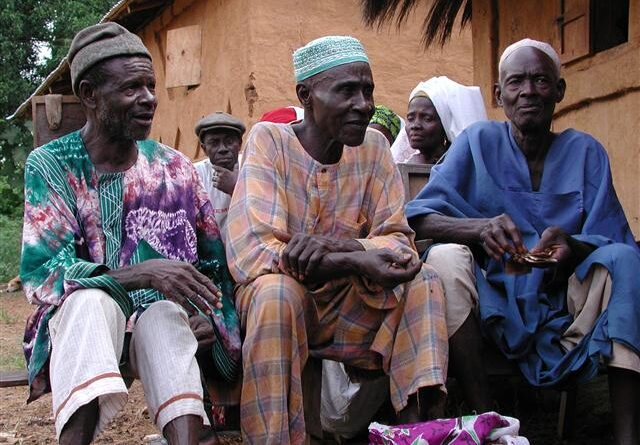Africa Is Aging. Will It Become A Real Population Bomb?
Africa is the most youthful continent, with 70% of sub-Saharan Africa under age 30. With high fertility rates and objections to birth control, the youth population will continue to grow. Investing in young people is important for the continent’s transformation, but Africa also needs to prepare for a growing older population that will present new issues in the decades ahead.
By the end of this century, Africa will be home to almost 40% of the world’s population, including a 15-fold growth in older adults, from 46 million today to 694 million. Continuing progress in public health and medicine promises to make that population boom and longevity possible. However, this demographic phenomenon can be expected to strain families, communities, and nations, with the incidence of aging-associated diseases climbing to all-time highs.
Even now, older people face serious challenges. Studies show that many older people in sub-Saharan Africa cannot perform essential tasks of daily life without the assistance of others. Older people are often faced with prohibitive costs for health services, whether for consultations, medication, diagnostic tests, or treatment and are less likely to seek health services. It is a travesty that older adults still face issues like mistreatment, theft, and neglect, even after they have reached a stage where they desire the same rights as everyone else.
Other continents are facing the challenges of rapid population aging. However, Africa has time and a unique opportunity to develop policies and practices that will improve health and quality-of-life outcomes for its future aging demographics. Health care is key to this preparation. Nigeria, for example, is Africa’s biggest economy, yet government spending on health is low—below four percent of its budget. Consequently, many who cannot afford quality care are left out. As Africa becomes a wealthier continent, it must manage that growth inclusively so more people are well, productive, and happy.
African countries with sizable young populations are poised for a demographic boost to their economies. Today’s African youth is generally optimistic about the future, active on social media, and a source of innovative ideas. But unfortunately, they are in great need of jobs, mentorship, and other ways to help them reach their potential. It is high time that the continent taps into the power of intergenerational collaboration. Putting young and older adults in shared work environments would benefit African employers and their age-diverse employees. Stimulating the entrepreneurial spirit is also important, according to Brookings, as more and more African youth are looking to start their businesses as entrepreneurs. Older adults can participate in mentoring relationships or join their younger colleagues as business partners. As young people enter the workforce, employers and governments should develop smart policies for workers of all ages. Other issues that could improve entrepreneurship include access to funding, adequate infrastructure, and a culture of innovation.
Educating citizens to embrace the aging process and raising awareness of the challenges and opportunities of the later stages of life should also be a priority. It can be emphasized again that African societies should invest more in health and wellness. Some examples include equipping older adults with coping skills and encouraging people of all ages—especially youth—to stop smoking, be physically active, drink little or moderately, and make healthy food choices.
African societies value having children to maintain family lineage and confer social status. But it must not end there. Africa has another means to ensure its transition to population aging is successful. That opportunity is to capitalize on culture – on the high respect afforded older adults. African elders are important members of their communities. They hold places of influence and are sought after for wisdom and guidance by their peers, younger generations, and society.
Desmond Tutu, South African archbishop and theologian, has put this attitude into words: “As we get older, our rights do not change. As we get older, we are no less human and should not become invisible.” The time to act is now.
Read more @forbes











